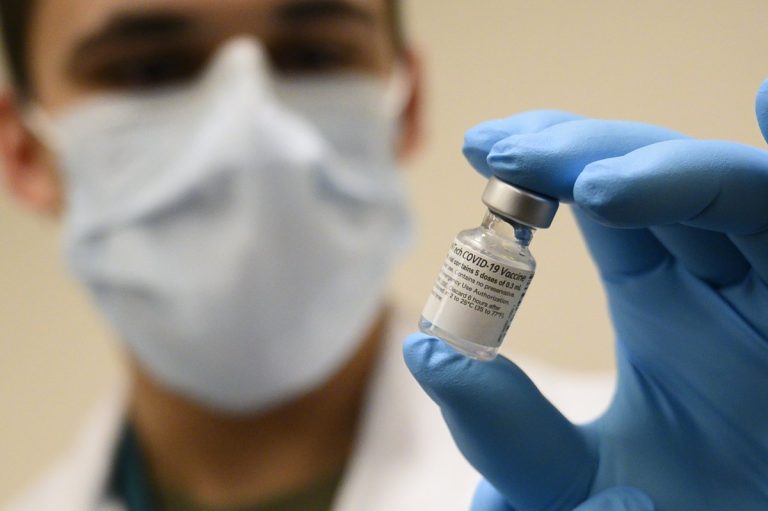Key Takeaways:
- Understanding the basic principles of mRNA technology and its applications in today’s world.
- The impact of mRNA manufacturing on medical research and treatment advancements.
- Current challenges and opportunities within the mRNA manufacturing industry.
Introduction to mRNA Technology
mRNA, or messenger RNA, is a pivotal molecule in modern biotechnology, carrying genetic blueprints from DNA to the cellular machinery responsible for protein synthesis. Its role is fundamental in the biological processes of all living organisms, making it a significant focus in biotechnological research. The advent of GMP manufacturing for pharmaceuticals has amplified the potential of mRNA in creating effective and reliable medicines. This advancement enhances production quality and scalability and ensures adherence to stringent safety and regulatory standards. As scientists continue to unravel the complexities of mRNA, this technology is positioning itself as a key player in the future of Medicine, capable of addressing previously insurmountable challenges in disease prevention and treatment.
Applications of mRNA in Medicine
The medical landscape has significantly evolved with the incorporation of mRNA technology. Its most renowned application is in vaccine development, as seen during the COVID-19 pandemic. These vaccines have proved mRNA’s rapid adaptability and efficacy in generating immune responses. Furthermore, mRNA holds promise in gene therapy, enabling the editing of genetic instructions to treat inherited disorders. Areas like cancer treatment also explore mRNA’s potential, where personalized cancer vaccines could target specific tumor markers in patients, offering a custom therapeutic approach. Such applications underscore the versatility of mRNA as a tool for transformative medical interventions. Beyond these, ongoing research investigates mRNA’s potential in treating neurodegenerative diseases and cardiovascular conditions, paving the way for a new era of medical therapies.
Manufacturing Process of mRNA
mRNA production involves sophisticated biotechnological processes, ensuring the high fidelity and function of the RNA strands. The manufacturing stages comprise DNA synthesis, transcription, and meticulous purification. Each step is a hallmark of precision, beginning with synthesizing a DNA template that instructs the transcription of an accurate mRNA sequence. This process guarantees that the mRNA manufactured is suitable for therapeutic use, meeting stringent quality standards and regulatory requirements. Such attention to detail in the manufacturing process is crucial to maintaining the efficacy and safety of mRNA-based therapies, reinforcing their potential in clinical applications. As this technology continues to mature, researchers are developing new techniques to increase yield and purity further, optimizing the balance between efficiency and control in mRNA manufacturing.
Innovations in mRNA Production
With continual advancements, mRNA production has seen innovative enhancements that streamline the workflow and increase scalability. Recent developments have focused on improving stability and delivery methods, ushering in a new era of efficient manufacturing processes. For instance, lipid nanoparticles have become a crucial delivery mechanism, protecting mRNA strands from degradation and facilitating their cell entry. Such innovations are essential for responding swiftly to emerging health challenges with effective therapies. Moreover, automation and artificial intelligence are being deployed to optimize production lines, ensuring consistent quality and reducing production times. These innovations are not only improving the robustness of mRNA production. Still, they are also expanding the horizons for how personalized Medicine can be deployed globally, making healthcare more responsive and precise.
Global Impact and Market Trends
The reach of mRNA technology extends beyond immediate health benefits, influencing global economics and market dynamics. As described in recent analyses, the field is expected to experience substantial growth, driven by the increasing demand for novel therapeutics and vaccines. This surge allows biotech startups and established companies to explore new markets and applications. The ability of mRNA to address unmet medical needs provides a fertile ground for investment, innovation, and collaboration among global stakeholders, further fueling its market entry and expansion. Additionally, government and private sector investments are fostering an environment ripe for breakthroughs, enabling the development of cutting-edge facilities and research initiatives worldwide.
Challenges in mRNA Development
Despite its apparent potential, mRNA development faces several challenges. Key among these are the effective delivery of mRNA molecules to target cells and ensuring their stability within the human body. Degradation before reaching target cells can limit efficacy, necessitating continuous research into new delivery vectors. Moreover, overcoming regulatory barriers remains a significant hurdle. As regulatory frameworks evolve, it is crucial to establish standardized protocols that assure safety and efficacy without stifling innovation. Addressing these challenges requires continuous research and collaboration among industry stakeholders. By mobilizing concerted efforts, the sector can enhance the scalability of mRNA therapies and address public health needs more efficiently.
Future Prospects of mRNA Manufacturing
Looking forward, the future of mRNA manufacturing appears bright, poised to revolutionize the treatment landscape and how biotechnological innovations are adopted. Expected advances include personalized medicine approaches, where treatments can be tailored to individual genetic profiles, enhancing efficacy and safety. Additionally, with new mRNA constructs being developed, the scope for treating chronic diseases and complex conditions expands, offering new hope for patient outcomes. Innovations in bioprocess engineering and process analytics are also anticipated to play a key role in maximizing the potential of mRNA manufacturing technologies. As the industry advances, collaboration between academic institutions, industry leaders, and regulatory agencies will remain vital to drive the global ethical and practical deployment of mRNA therapies.
Conclusion and Key Insights
In conclusion, mRNA manufacturing is at the cutting edge of biotechnological innovation with the potential to transform healthcare significantly. Its influence spans current applications and prospects, making it an exciting field for researchers and industry leaders. Continued advancements will be crucial for unlocking its full potential, inviting a collaborative effort across sectors. The promise of mRNA in addressing various therapeutic challenges signals a pivotal shift in how modern Medicine approaches, from rapid vaccine development to personalized therapies. By fostering an environment of innovation and collaboration, the biotech community can ensure that mRNA technology continues to lead the charge toward a healthier and more resilient world.

